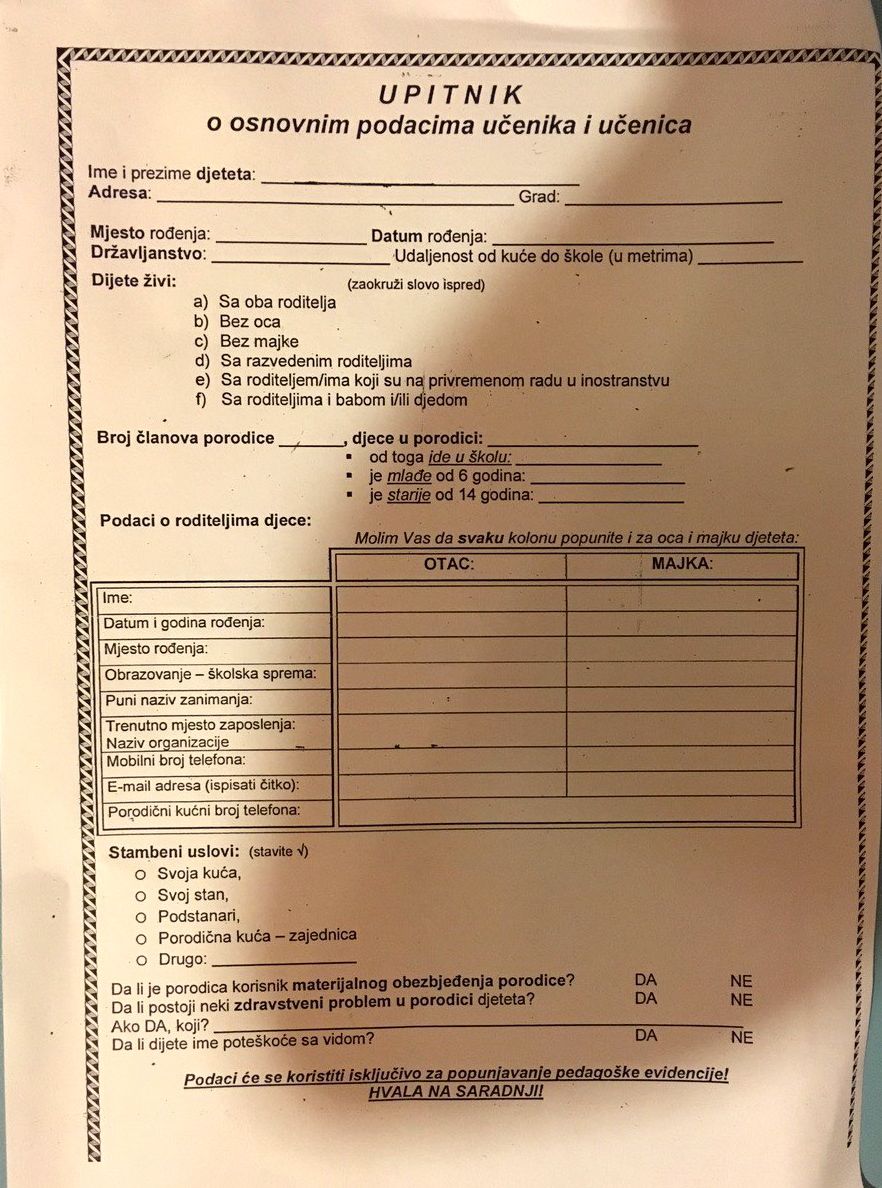Centre for Civic Education (CCE) estimates that the questionnaire on basic information about the pupils, which was distributed in some of the elementary schools, such as ES „Štampar Makarije“ and ES „Radojica Perović“, constitutes an illegal collection of data. Such practice needs to be suspended immediately, and the responsibility for its initiation has to be established as well.
Namely, during the enrolment of children in schools, pupils are given questionnaires related to series of personal information about their families. These questionnaires could not have been handed out without a permission from the Ministry of Education, which opted for silence concerning this matter, instead of providing an explanation to the public as to how this could have happened and sanctioning the ones who are in charge for this.
CCE reminds that this is a case of an unacceptable and potentially dangerous questionnaire, because it requests the information that can later cause divisions and discriminatory relations of teaching and managerial staff towards pupils and their parents.
Pupils should be in the focus of schools, their upbringing and education must be a priority for the school’s teaching and managerial staff, regardless of their family backgrounds since e they are all equal before the law. Hence, there is no need for schools to make the personal files with data related to members of their families.
It is important to emphasise that this questionnaire contains series of questions which can be regarded as classified data. It says nothing that parents, or child’s caretakers, are not obliged to provide the answers to those questions which they deem personal and classified, to which none has the right to know the answer. On the contrary, it compels them to fill every row for both their mother and father!
Further, this raises the question about the real purpose of this questionnaire, because the majority of these information the school obtains upon the enrolment of a child in school. However, personal questions such as: “Is your family a user of financial family support?” “Are there any health problems in the family of the child”, as well as the question of housing conditions of family, should not be in the interest of school’s administration whatsoever. CCE hopes that this questionnaire is not a part of some electoral engineering, whereby the data are used to affect the manner of vote of a parent.
Finally, this is yet another evidence that school directors have far too many on their table in terms of their official authorisations, which are often misused. CCE previously indicated that the manner of selection and appointment of directors by the ministers is not a wise approach, and that it does not contribute in the establishment of democratic principles in schools. It is separate issues to what extent the councils of parents and school committees are aware of this questionnaire, and what was their reaction to the same.
Mira Popović, programme associate

